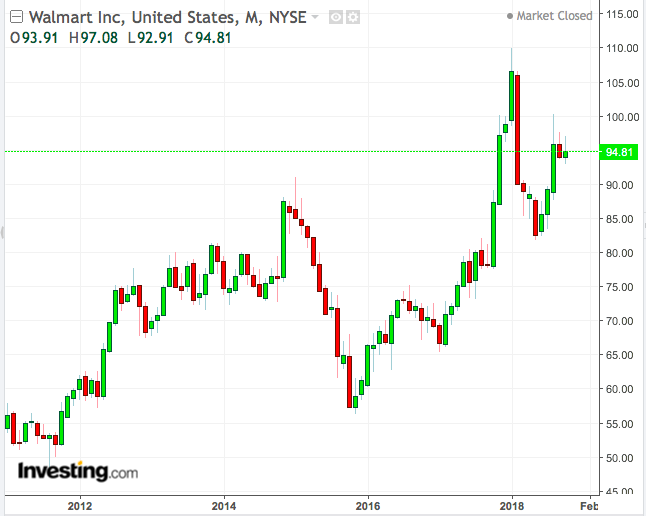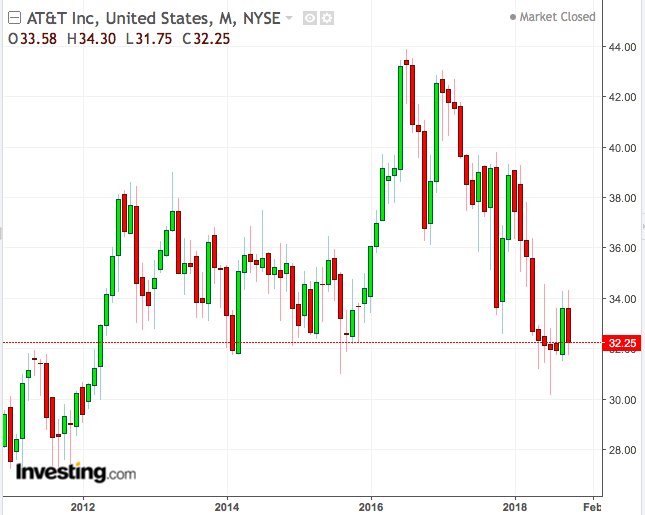Investing in stocks has always been risky. Buying safe-haven government bonds or stashing money in a low-rate savings accounts is the more secure bet. After all, equity investors expose themselves to a variety of risks, the biggest of which are recession and rising inflation.
Last week we saw an example of just how wildly the stock market can react when the risk of inflation stoked concerns that the Federal Reserve will raise rates more aggressively as it tries to cool down the overheating economy. That said, if you want to be in the market for the long haul, it's impossible to completely avoid risk.
However, you can minimize your risk. This is best done by diversifying your portfolio and adding stocks that have low-betas, meaning equities that are less volatile than the overall stock market. These stocks will still fall during a severe market downturn, but their declines are less dramatic than the high-growth players. They will also rebound quickly when a market correction is done.
Walmart Inc (NYSE:WMT) and AT&T Inc (NYSE:T) are two dividend stocks that can help keep your portfolio protected from a prolonged market downturn or even an economic recession.
1. Walmart Inc.
One way to position your portfolio to better perform during times of market distress is to include companies that produce or sell products and services that are crucial to our daily lives. Giant retail companies fit this profile well. The logic: in times of economic recession, you may cut your fine dining budget, but there's little chance you'll scrimp on basic grocery shopping.
This built-in protection makes the world’s largest brick-and-mortar grocer, Walmart Inc. (NYSE:WMT), a great recession-proof stock. With a beta of just 0.26 (riskier stocks have a higher beta, closer to or above 1), Walmart stock is one of the safest big-cap stocks.

Walmart is currently trading at $94.81. Fundamentally, this is not a bad time to buy Walmart as the company is currently succeeding in its plan to attract more online customers amid the growing threat of competition from Amazon (NASDAQ:AMZN).
The growing success of its hybrid retail model—in which its massive store network and online presence come together to create a superior shopping experience for customers— is evident from the second quarter earnings when the retailer’s U.S. comparable sales jumped 4.5%, its biggest expansion in more than a decade and more than double the consensus forecast.
Walmart’s rock-solid dividend is an added benefit. It makes this stock a good choice to own through the market's thick and thin activity. The company has an impressive track record when it comes to returning cash to its investors.
Early this year, Walmart announced a 2% hike in its dividend payout to $2.08 per share per annum, for a 2.21% yield. With this increase, Walmart has raised its payout every year for the past 45 years. A regularly increasing payout provides a good hedge and protects the value of your investment from erosion by inflationary pressures.
2. AT&T
Telecom, power, and gas utilities are perhaps among the most boring segments of the market with little upside potential. But during difficult times, these are the stocks you can rely on for a regular income stream.
The reason is simple—these businesses are reliable cash cows. Whatever the economic situation, customers have to pay monthly bills and most of that cash is distributed by the company to shareholders. That stability is the key factor that makes these companies less risky when compared to the overall market.
AT&T is an excellent stock in that regard. It generated $162 billion in sales last year. With a beta of 0.34, it has massive scale and a growing competitive edge following its merger with Time Warner which added content sources, including CNN, HBO and Warner Brothers Studios, to its portfolio.

We also think the time is right to buy AT&T, as its valuations are currently near all-time lows. With a trailing 12-month price-to-earnings multiple of 6.3, the stock is cheap at $32.25. AT&T's juicy 6.27% dividend yield—one of the highest rates of return in the technology and telecom sector—is another reason to own this stock. The company has a 34-year history of delivering annual payout growth, suggesting low risk for any negative surprise.
Bottom Line
Buying low beta dividend stocks is a winning strategy for protecting your investment from wild price swings and bear markets. Walmart and AT&T fit nicely into that strategy. Each will preserve your investment while earning growing income.
